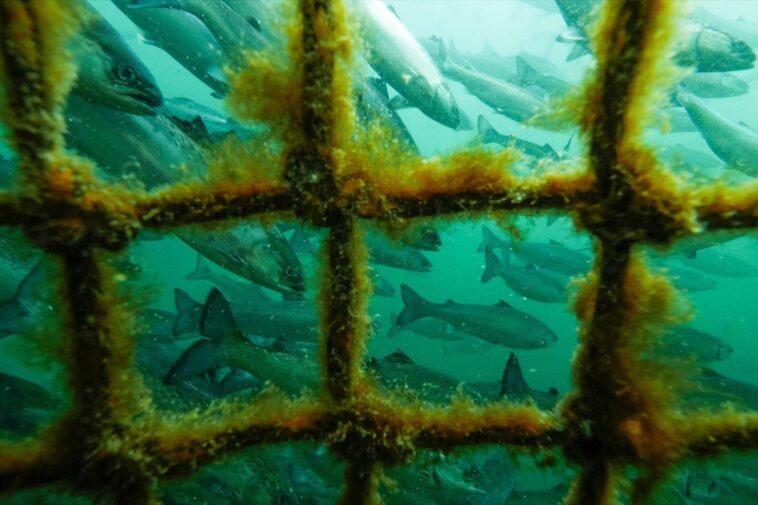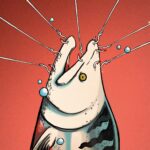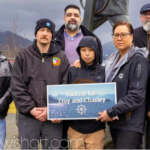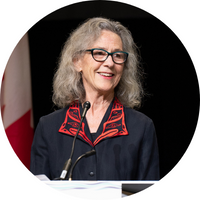
The federal government recently made a controversial decision to close down 15 fish farms in B.C.’s Discovery Islands–and now federal fisheries minister Joyce Murray is explaining why.
During an interview with David McKie of Canada’s National Observer in his podcast Hot Politics, Murray laid out the government’s thinking behind the decision.
“This was really a decision that was made to protect wild salmon in B.C.,” said Murray. “Wild salmon are in dire straits.”
“I needed to take a precautionary approach in this decision to protect wild salmon,” she said, adding that she’s legally bound by the federal Fisheries Act to rule on the side of caution.
Murray told McKie the aquaculture industry “has been positive in terms of jobs in remote communities,” and noted the government wants to move all open-net salmon pens onto land within a few years, including about 80 additional salmon farms elsewhere in B.C.
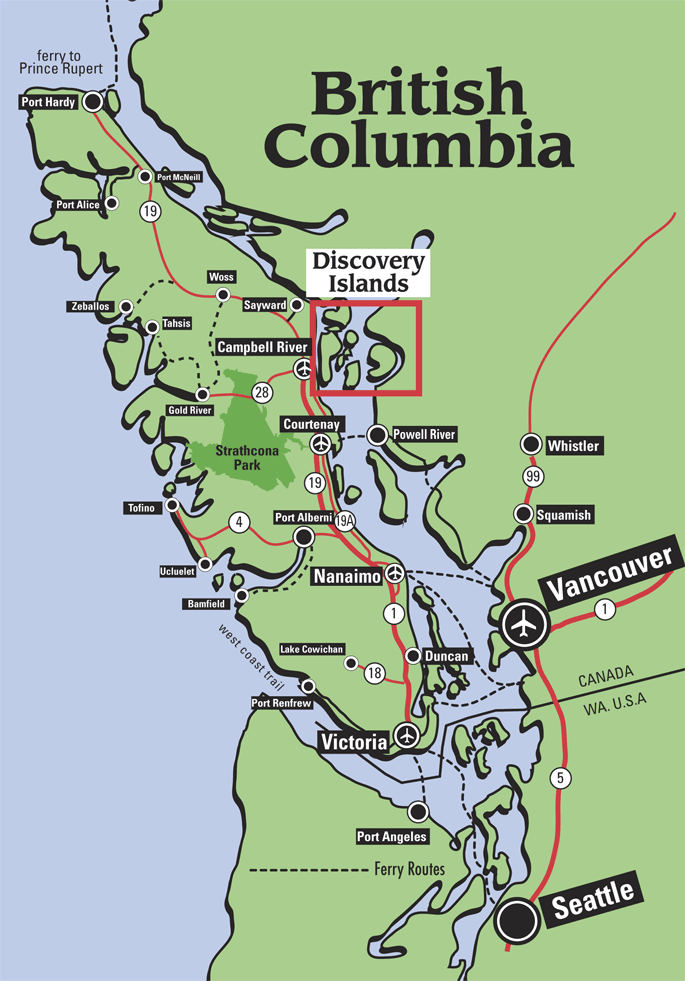
Image Source: Discoveryislands.ca
But she said the farms in the Discovery Islands, an area north of Campbell River, were cancelled because the area is unique and particularly important to migrating salmon from the Fraser River watershed.
Millions of young wild salmon, called smolts, migrate every year out to the open sea through the narrow coastal passages around the Discovery Islands .
Many research reports have warned that these salmon smolts risk catching parasites and disease from farmed fish. Though a recent DFO report issued from Ottawa downplayed that risk, that same report was slammed by 16 prominent scientists at several universities as full of “scientific failings”.
Murray said the government cannot take chances, especially when salmon are in trouble from many other threats at the same time, including climate change, habitat destruction, and illegal fishing practices.
“There is uncertainty with respect to the risks posed by Atlantic salmon aquaculture farms to wild Pacific salmon in the Discovery Islands area, as well as to the cumulative effect of any farm-related impacts on this iconic species.”
Joyce Murray, Federal Fisheries Minister
“There is uncertainty with respect to the risks posed by Atlantic salmon aquaculture farms to wild Pacific salmon in the Discovery Islands area, as well as to the cumulative effect of any farm-related impacts on this iconic species,” Murray noted in her decision.
The fish farms, mostly owned by multinational corporations, employed hundreds of people on the North Island, both directly and in related industries. They were opposed by most commercial fishermen, parts of the tourism industry, and many scientists and conservationists. There are both supporters and opponents of the farms among First Nations.
The Commission of Inquiry by Justice Bruce Cohen warned nearly a dozen years ago that “net-pen salmon farming in the Discovery Islands poses a risk of serious harm to Fraser River sockeye through the transfer of diseases and pathogens.” Cohen wrote in his recommendations, “The full extent and likelihood of that harm cannot be determined because of scientific unknowns.”
Previous attempts by the DFO to remove the fish farms failed, as West Coast Now earlier reported, after the aquaculture industry took the government to court.
“This is the 3rd time a minister has made this decision,” marine biologist Alexandra Morton, who is a fierce opponent of fish farms, said on Facebook. “Hopefully this will stick. Thank you Minister Joyce Murray.”
“Given the perilous state of many Pacific salmon stocks that migrate past the Discovery Islands, we believe that this decision is an important measure to protect wild salmon and support our shared goals to rebuild Pacific salmon stocks in British Columbia.”
The Pacific Salmon Foundation
Conservation organizations applauded Murray’s decision. “Given the perilous state of many Pacific salmon stocks that migrate past the Discovery Islands, we believe that this decision is an important measure to protect wild salmon and support our shared goals to rebuild Pacific salmon stocks in British Columbia,” said the Pacific Salmon Foundation.
The Union of B.C. Indian Chiefs, dozens of other First Nations reliant on Fraser River salmon, and Hereditary Chief Gigame of the Laichkwiltach Nation in the Discovery Islands, applauded the decision to remove the farms.
The industry group, the BC Salmon Farmers Association, called the federal decision “devastating” and warned of job losses, while the Coalition of First Nations for Finfish Stewardship-First Nations involved in fish farming–accused the government of “dismissing” their rights.
One of the aquaculture companies in the area, Norwegian-owned MOWI, said in a blog post that it “is now reviewing the decision and is considering its legal options.”
“I can’t comment on potential court cases,” Murray told McKie, but added, “I know this was a solid decision made on the basis of my responsibility as the fisheries minister.”




